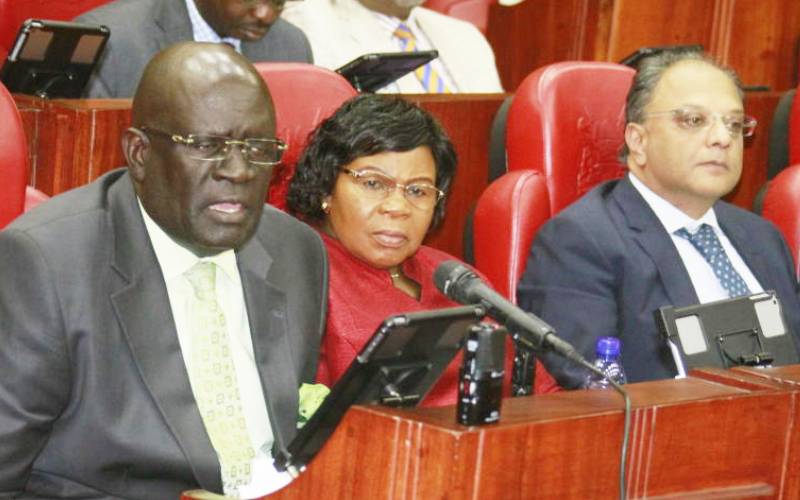×
The Standard e-Paper
Fearless, Trusted News

Education CS George Magoha (left), Higher Education PS Collette Suda and Technical, Vocational Education and Training (Tvet) PS Kevit Desai before the National Assembly Education Committee on Thursday. [Boniface Okendo, Standard]
Education Cabinet Secretary George Magoha has said duplication of courses by universities is to blame for joblessness among graduates.